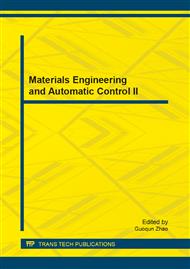p.587
p.592
p.598
p.602
p.606
p.611
p.615
p.619
p.624
Research and Optimization of Thermal Power Unit's Automatic Control Based on Frequency Regulation Ability of Power Grid
Abstract:
Wind power and other new energy connected to power grid bring new challenges to optimal operation of power systems. The stability of power grid mainly depends on primary frequency compensation and secondary frequency compensation of thermal power units. By analyzing the theory and practice of DEH and coordinated control system (CCS) of thermal power units, combined with the insufficient of actual primary frequency compensation and automatic power generation control (AGC) strategy response to frequency of accidents, the optimization of primary frequency compensation and AGC of thermal power units automatic control were offered. The practical application results show that the proposed control strategy can effectively control the thermal power units to achieve the stability of power grid frequency.
Info:
Periodical:
Pages:
606-610
DOI:
Citation:
Online since:
June 2013
Authors:
Price:
Сopyright:
© 2013 Trans Tech Publications Ltd. All Rights Reserved
Share:
Citation:


